 MyDogBreeds
MyDogBreeds Tenterfield Terrier is originated from Australia but Kintamani is originated from Indonesia. Tenterfield Terrier may grow 24 cm / 9 inches shorter than Kintamani. Tenterfield Terrier may weigh 13 kg / 29 pounds more than Kintamani. Both Tenterfield Terrier and Kintamani has same life span. Tenterfield Terrier may have less litter size than Kintamani. Both Tenterfield Terrier and Kintamani requires Low maintenance.
Tenterfield Terrier is originated from Australia but Kintamani is originated from Indonesia. Tenterfield Terrier may grow 24 cm / 9 inches shorter than Kintamani. Tenterfield Terrier may weigh 13 kg / 29 pounds more than Kintamani. Both Tenterfield Terrier and Kintamani has same life span. Tenterfield Terrier may have less litter size than Kintamani. Both Tenterfield Terrier and Kintamani requires Low maintenance.
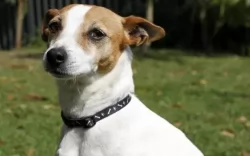 The ancestors of the Tenterfield Terrier came to Australia with the British and from them came this Australian breed. The English terriers were bred to be ratters on the ships to Australia. Today’s breed is a hardy, strong, athletic and agile dog. These first dogs were miniature Fox Terriers, bred for ratting. The miniature Fox Terrier was an established breed in the late 19th century in Australia with families and was know as a Mini Foxie. The breed became a steady presence in homes by the 1920’s.
The ancestors of the Tenterfield Terrier came to Australia with the British and from them came this Australian breed. The English terriers were bred to be ratters on the ships to Australia. Today’s breed is a hardy, strong, athletic and agile dog. These first dogs were miniature Fox Terriers, bred for ratting. The miniature Fox Terrier was an established breed in the late 19th century in Australia with families and was know as a Mini Foxie. The breed became a steady presence in homes by the 1920’s.
The breed might not have been named after the area of Tenterfield as many have guessed. Instead they may have been named after a breeder. The owner of the Tenterfield saddlery was called Tenterfield Saddler and he owned several of the breed. In 1990, Don Burke, a television personality suggested the breed be named the Tenterfield Terrier.
The Miniature Fox Terrier Club of South Australia. Now there were several clubs in Australia and a lot of disagreement about exactly what type of dog a miniature fox terrier was. Some did not think the name was legitimate, but they wanted recognition from the Australian National Kennel Club (ANKC). So, they became the Tenterfield Terrier Club of Australia in 1993. They were recognized by 2002.
Today the breed standard for the Tenterfield Terrier is different from the one for the Miniature Fox Terrier. They are now entirely separate breeds. In addition to the ANKC, the breed is recognized by the New Zealand Kennel Club but not by the AKC. It is also recognized by the American Pet Registry, Inc, the American Canine Registry and the Dog Registry of America, Inc.
 The Kintamani dog is an ancient cross-breed and hails from Bali Island, Indonesia.
The Kintamani dog is an ancient cross-breed and hails from Bali Island, Indonesia.
The beautiful dog is classified into the working dog group.
It isn't sure how the dog developed, and it is believed that local Balinese feral dogs might have had a show in with bring the breed about. There are many stories regarding the origination of this breed but in 2006 the dog got recognition in Bali under the category 'distinct' dog breed.
There are efforts to see the Kintamani dog get global recognition.
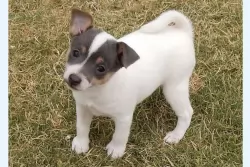 The Tenterfield Terrier is square and compact. He has a head shaped like a wedge and unusual in the terrier group. They have pricked ears and are predominantly white mixed with tan or black. They could also be tri-colored in black/tan and white or tan/liver and white. They have naturally occurring bob tails or docked tails. The nose is usually black unless the dog is liver colored, they have liver noses. The jaws are strong, and lips are tight with a strong neck.
The Tenterfield Terrier is square and compact. He has a head shaped like a wedge and unusual in the terrier group. They have pricked ears and are predominantly white mixed with tan or black. They could also be tri-colored in black/tan and white or tan/liver and white. They have naturally occurring bob tails or docked tails. The nose is usually black unless the dog is liver colored, they have liver noses. The jaws are strong, and lips are tight with a strong neck.
 Looking quite a bit like the Malamute, Chow and Samoyed, the Kintamani is a medium sized dog and has a broad face, erect ears, dark-brown eyes and a thickly plumed tail that is essentially held high.
Looking quite a bit like the Malamute, Chow and Samoyed, the Kintamani is a medium sized dog and has a broad face, erect ears, dark-brown eyes and a thickly plumed tail that is essentially held high.
The Kintamani is a Spitz type dog with an attractive appearance. Standing at 40 to 55cm, the Kintamani weighs in at roughly 13 to 17kg. The colors of the medium to long haired coat are white, beige, black and even brindle, though less common.
Having an independent nature and being territorial, your Kintamani can become aggressive with other dogs. He is very loving and accepting of his human family members though, becoming very loyal to one favorite family member.
They're alert and curious and make good watchdogs. He is also fond of swimming and climbing so he makes a good sport companion.
He is an intelligent dog and he can be easy to train. He is strong-minded and an independent thinker, so training and socialization will rein him in a bit and make him obedient and amicable.
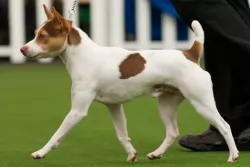 3.Adaptability – they need space even though they are small. They need a lot of exercise. They can adapt if they get another exercise. They can live in apartments and can play indoors as well as out.
3.Adaptability – they need space even though they are small. They need a lot of exercise. They can adapt if they get another exercise. They can live in apartments and can play indoors as well as out.
4.Learning ability – They are extremely intelligent, but they can be stubborn like all terriers.
 The Kintamani dog is an alert, bright, intelligent dog who will make you a good watchdog.
The Kintamani dog is an alert, bright, intelligent dog who will make you a good watchdog.
He also makes a companionable pet, and is friendly, loving and loyal to his human family. He has a social, lively temperament, and as people see what awesome pets they make, they are becoming more in demand as they are also easily trainable.
Do your duty towards this attractive dog and love and care for him like any other family member and he’ll be your most devoted best friend.
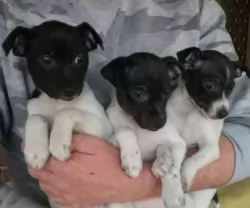 They are small in stature and because of their face they seem to have dental issues. The breed does not have a lot of health issues but deals with the same issues as many small terriers. Not all members of the breed are susceptible to these, but some are just like the Australian Terrier.
They are small in stature and because of their face they seem to have dental issues. The breed does not have a lot of health issues but deals with the same issues as many small terriers. Not all members of the breed are susceptible to these, but some are just like the Australian Terrier.
 You’re the only one who knows your dog, so you’re the one who will pick up signs that he isn’t well.
You’re the only one who knows your dog, so you’re the one who will pick up signs that he isn’t well.
You can tell a lot from your dog’s behavior, and often a dog that isn’t well will hide away in a corner. If you're worried about your pet’s health, get him to the vet for peace of mind.
Being a responsible dog owner requires you regularly performing body checks on your pet.
The canine parvovirus (CPV) infection is a very contagious viral illness that affects dogs. The intestinal form will have your dog vomiting, he won’t want to eat and he’ll have diarrhea.
The other less common type is the cardiac parvo where the heart muscle of a fetus is attacked, leading in all likelihood to death. Thankfully the incidence of the parvo-virus infection has been reduced by vaccination of puppies.
This is a tick-borne illness that is transmitted through deer ticks. It is a disease more typically seen in dogs from the northeast United States. Common signs of the illness are lameness, lethargy and enlarged lymph nodes. Most dogs respond well to antibiotic treatment.
Take a look inside your dog’s ears and check for itchiness, discharge and redness. Inside the dog’s ears it is very sensitive so if you don’t want to clean his ears, rather leave you vet to do it as you don’t want to perforate your dog’s eardrums.
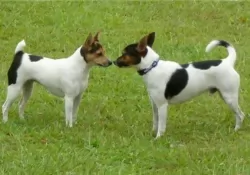 1.Feeding the puppy – Don’t overfeed but do feed high quality puppy food for small breeds and terriers.
1.Feeding the puppy – Don’t overfeed but do feed high quality puppy food for small breeds and terriers.
2.Feeding the adult – This is an active breed but don’t overfeed. Feed a high quality adult dog food for terriers or small breeds. Feed 2 times a day.
4. Games and Exercises – The breed has a high energy level and needs a lot of exercise. He is a terrier and loves to “go to ground”. Play activities that allow him to do that are best. He plays barn hunt, lure coursing and terrier specific competitions.
 The thick, lustrous coat of the Kintamani will need to be brushed twice a week because the coat is capable of getting burrs in. He sheds, so to keep the coat lustrous you want to be brushing him twice a week to remove all those loose hairs.
The thick, lustrous coat of the Kintamani will need to be brushed twice a week because the coat is capable of getting burrs in. He sheds, so to keep the coat lustrous you want to be brushing him twice a week to remove all those loose hairs.
The dog can adjust to life in the city or the countryside, but being energetic it is best that they have a reasonable sized garden or life on a farm. He will be quite happy with some good walks, but he'll want some more rough and tumble. He just loves joining you on a hike and climbing on rocks. These dogs are actually known for their climbing skills.
Kibble isn’t all equal, and dog owners have a huge choice, with the idea being to find the most nutritious one. Good food is key to good health for your Kintamani.
Your Kintamani puppy will require 4 meals a day. As he reaches adulthood you can start feeding him one or two meals a day.
The Kintamani has a beautiful thick coat and you want to ensure it stays that way by feeding him the best quality food there is. Top-quality dry food from a reputable brand will ensure balanced nutrition.
Read the packaging to ensure you’re giving him food that is appropriate to his age and for medium sized dogs. He will do well on some cooked chicken, brown rice, pasta and vegetables being added to this dry kibble every now and again as a treat.
If you’re unsure about whether he is getting the right kind of food in with a good balance of vitamins and minerals, you can always speak to your vet. Make sure that fresh, cool water is constantly available to him and wash his food and drink bowls regularly.